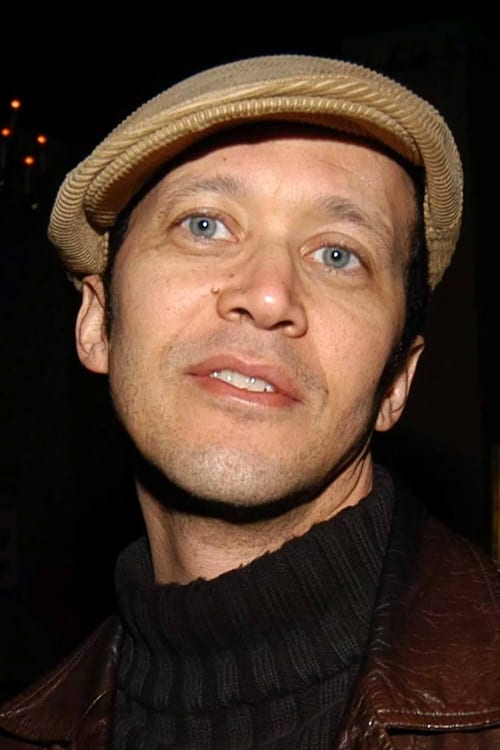
|
Basquiat, Une Vie (2010)
Character: Himself
From Brooklyn to the Bronx, Soho to Greenwich, Union Square to Wall Street... Join us and the friends, collaborators and gallery owners who supported Jean-Michel Basquiat throughout his life. The first ever recognized graffiti artist, who saw international success as a neo-expressionist painter in the 80s, Basquiat is a true contemporary hero who died at the peak of his career.
|
|

|
Downtown Calling (2009)
Character: Self
In the late 1970s, the "greatest city in the world" was teetering on the edge of total chaos. A failed economy, crime and en mass housing corruption gave way to a city in crisis. Yet out of the economic and social strife that held the "Big Apple" hostage, a family of homegrown cultures that would forever change the world began to emerge. Downtown Calling not only documents, in detail, the evolution of New York City's fertile music and art subculture during this period, but how its collective output continues to play a prominent, driving role in the international fashion, art and music industries today.
|
|

|
TV Party (2005)
Character: Self
From 1978 to 1982, Glenn O'Brien hosted a New York city public access cable TV show called TV Party. Co-hosted by Chris Stein, from Blondie, and directed by filmmaker Amos Poe, the hour long show took television where it had never gone before: to the edge of civility and "sub-realism" as Glenn would put it. Walter Steding and his TV Party "Orchestra" provided a musical accompaniment to the madness at hand, and many artists and musicians, from The Clash, Nile Rodgers, Jean-Michel Basquiat, David Bryne and Arto Lindsey were regular guests. It was the cocktail party that could be a political party. With 80 hours of disintegrating 3/4 inch videotape as a starting point, we tracked down the trend setting participants still living today and found out what they remember of the period and how the show influenced their lives. This, combined with clips from the orginal show, became the documentary "TV Party.
|
|

|
Sound and Chaos: The Story of BC Studio (2014)
Character: Himself
For over 30 years, Martin Bisi has been recording music from his studio in Gowanus, Brooklyn. He has worked with many influential musicians, including Sonic Youth, Swans, Herbie Hancock, Brian Eno and the Dresden Dolls. Now though, he finds himself squeezed in by the approaching gentrification of his neighborhood.
|
|

|
And You Don't Stop: 30 Years of Hip-Hop (2004)
Character: Self
The film documents the development of hip hop culture since its inception in the 1970s. With interviews from various figures in the community such as Afrika Bambaataa, Grandmaster Flash, Fab 5 Freddy, KRS-One, MC Hammer and Busy Bee.
|
|
|
|
|
|

|
Jean-Michel Basquiat, artiste absolu (2022)
Character: Self - Musician, hip-hop historian, co-founder of the group Gray
The life and work of New York artist Jean-Michel Basquiat have been marked by a long quest for identity, by his Haitian and Puerto Rican family origins and by a founding trip to Africa. To portray this major painter of the 20th century, who died in 1988 at only 27 years old, is also to evoke the place of black American artists in the conservative and racist America of the Reagan years.
|
|

|
Downtown '81 (2001)
Character: Michael
The film is a day in the life of a young artist, Jean-Michel Basquiat, who needs to raise money to reclaim the apartment from which he has been evicted. He wanders the downtown streets carrying a painting he hopes to sell, encountering friends, whose lives (and performances) we peek into.
|
|

|
Basquiat: Rage to Riches (2017)
Character: Self (Writer, filmmaker)
This film tells Jean-Michel's story through exclusive interviews with his two sisters Lisane and Jeanine, who have never before agreed to be interviewed for a TV documentary. With striking candour, Basquiat's art dealers - including Larry Gagosian, Mary Boone and Bruno Bischofberger - as well as his most intimate friends, lovers and fellow artists, expose the cash, the drugs and the pernicious racism which Basquiat confronted on a daily basis. As historical tableaux, visual diaries of defiance or surfaces covered with hidden meanings, Basquiat's art remains the beating heart of this story.
|
|

|
Fillmore (1972)
Character: Himself - Performer
Legendary rock impresario Bill Graham closed the Fillmore West in early summer 1971 with five nights of all-star concerts, the last curtain going down on July 4. The storied San Francisco venue had become an institution, an integral part of the West Coast music scene of the '60s and, now, an essential element of the mythology of rock 'n' roll. Always the showman, Graham made sure the Fillmore West was sent off in a blaze of glory, spotlighting bands - including the Grateful Dead and Santana-that rose to fame at the hall. The madness leading up to the shows and the concerts themselves were filmed for FILLMORE: THE LAST DAYS, a gritty, behind-the-scenes look at a fascinating moment in rock history and a showcase for great performances by iconic artists who epitomized 'the San Francisco Sound.' Originally released in 1972 and long out-of-print, the documentary film makes its DVD debut with Rhino's landmark reissue.
|
|

|
Jean-Michel Basquiat: The Radiant Child (2010)
Character: Self
A thoughtful portrait of a renowned artist, this documentary shines the spotlight on New York City painter Jean-Michel Basquiat. Featuring extensive interviews conducted by Basquiat's friend, filmmaker Tamra Davis, the production reveals how he dealt with being a black artist in a predominantly white field. The film also explores Basquiat's rise in the art world, which led to a close relationship with Andy Warhol, and looks at how the young painter coped with acclaim, scrutiny and fame.
|
|












